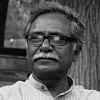
Anu Muhammad
The writer is member secretary of the National Committee to Protect Oil, Gas, Mineral Resources, Power and Ports.
The writer is member secretary of the National Committee to Protect Oil, Gas, Mineral Resources, Power and Ports.
Palestine is being reduced to a business opportunity under the Trump administration. Gaza is seen as prime real estate.
The 1971 Liberation War was the culmination of a long struggle for a democratic, secular, and egalitarian society.
Just because the Indian people supported Bangladesh in 1971, does that mean Bangladesh should now be indebted to the Indian government?
If we take Bangladesh as an example, the Liberation War was fundamentally fought to establish social justice.
True reform should involve policies that protect Dhaka’s residents and their right to a liveable city.
The mass uprisings of 1969 and 2024 have several similarities but differences also exist.
Until the fall of Sheikh Hasina's government in 2024, Bangladesh's economy was heavily shaped by rampant corruption, plundering, and illicit asset transfers.
The spirit of 1971 lives on, and it is up to the present generation to ensure that its promises are fulfilled.
When the president is making his objections, he should consider the whole process that has led to this situation today.
What kind of reforms are necessary to use the universities for the national interest and to increase our national capabilities?
"It is time for us to ask how much we have been able to recover from the energy crisis."
The energy sector was made LNG-dependent despite repeated warnings about it by experts.
Bangladesh is currently going through a grave economic crisis.
Even basic democracy seems to be missing in Bangladesh
It is a matter of great misfortune, as well as of disappointment and uncertainty, that democracy in Bangladesh is practically absent now.
What are the government’s plans with this huge population segment that is our youth, who are supposed to take the reins of our country in the future?
How does the government plan on utilising this significant chunk of the population?
There is a lack of clarity and transparency when it comes to how much subsidy is being provided to the power sector, why the government is providing it, and in fact, who they are subsidising.